Our Government Class 4 Worksheet SST
Q1: True or False.
(i) The head of a municipal committee is called president.
Ans: False
The head of a municipal committee is generally called the "Chairperson" or "Chairman." In some cases, the term "Mayor" might be used for the head of larger municipal bodies, but "President" is not a common term used for this role in municipal committees.
(ii) The government builds roads.
Ans: True
One of the functions of the government, whether at the local, state, or national level, is to build and maintain infrastructure, including roads. Building and maintaining roads are part of the government's responsibilities to provide essential transportation infrastructure for the public.
(iii) A new municipal committee is elected every year.
Ans: False
Municipal committees, also known as local governing bodies, are elected periodically, but the frequency of elections varies depending on the local laws and regulations. Elections for municipal committees typically occur at fixed intervals, which could be every few years, rather than every year.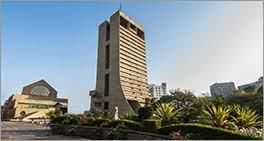
(iv) Municipal corporations provide civic amenities only in villages.
Ans: False
Municipal corporations provide civic amenities and services in urban areas, which include cities and towns, rather than villages. Civic amenities include services like water supply, sanitation, waste management, street lighting, and more, primarily in urban settings.
(v) The head of a municipal committee is called a mayor.
Ans: False
While "Mayor" is a term commonly associated with the head of a municipal body, it is more commonly used for the head of a municipal corporation, which is a larger urban local body. The head of a smaller municipal committee is generally referred to as the "Chairperson" or "Chairman."
Q2: Underline the correct answers.
(i) Local self-governing bodies collect money through taxes / donations.
Ans: taxes
Local self-governing bodies rely heavily on grants-in-aid from the state government to finance their budgets, they are authorised to collect various taxes, such as those levied on property, entertainment.
(ii) The minimum age to vote in a municipal election is 18 / 21 years.
Ans: 18
The Voting Rights Act of 1965 that required the voting age to be 18 in all federal, state, and local elections.
(iii) A hospital / restaurant is a civic amenity.
Ans: hospital
The facilities that are allotted to the general people by the government of India and by the municipal corporations are called civic amenities.
Q3: Fill in the Blanks.
(i) Civic amenities such as drinking water and electricity are provided by the ________________.
Ans: government
Civic amenities such as drinking water, electricity, sanitation, and other essential services are typically provided by the government at various levels, including local, state, and national levels. These amenities are crucial for the well-being of citizens and the development of communities.
(ii) The local self-government in villages is known as ________________.
Ans: gram panchayat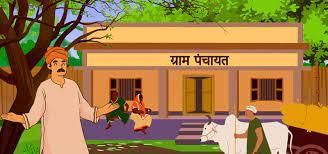 A gram panchayat is the local self-government institution in rural areas of India. It is responsible for governing and managing the affairs of a village or a group of villages. The gram panchayat plays a vital role in local governance, administration, and development activities in rural areas.
A gram panchayat is the local self-government institution in rural areas of India. It is responsible for governing and managing the affairs of a village or a group of villages. The gram panchayat plays a vital role in local governance, administration, and development activities in rural areas.
(iii) Municipal corporations are found in cities with a population of more than ________________.
Ans: 10 lakh
Municipal corporations are established in larger cities with a population exceeding a certain threshold. In India, a city needs to have a population of more than 10 lakh (1 million) to qualify for a municipal corporation. Municipal corporations have greater administrative powers and responsibilities compared to smaller local bodies.
(iv) The elected members of a municipal committee are called ________________.
Ans: municipal councillors
Municipal councillors are individuals who are elected by the residents of a local area to represent their interests in the municipal committee. Municipal councillors participate in decision-making, policy formulation, and the overall governance of the municipality.
(v) Local bodies collect money for functioning through various ________________.
Ans: taxes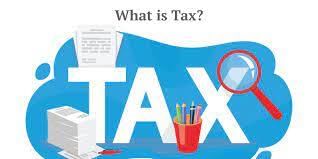 Local bodies, whether gram panchayats or municipal corporations, collect funds for their functioning and the provision of services through various taxes imposed on residents, properties, businesses, and other sources. These funds are essential to support local governance, infrastructure development, and the delivery of civic amenities.
Local bodies, whether gram panchayats or municipal corporations, collect funds for their functioning and the provision of services through various taxes imposed on residents, properties, businesses, and other sources. These funds are essential to support local governance, infrastructure development, and the delivery of civic amenities.
Q4: Multiple Choice Questions (MCQs).
(i) Who provides civic amenities to the people at the local level?
(a) State government
(b) Central government
(c) Local self-government
(d) International organizations
Ans: (c)
Civic amenities are provided by the local self-government at the local level.
(ii) What is the head of a municipal corporation called?
(a) Chairperson
(b) President
(c) Mayor
(d) Deputy Mayor
Ans: (c)
The head of a municipal corporation is called a mayor.
(iii) Which city has the oldest municipal corporation in India?
(a) Kolkata
(b) Mumbai
(c) Delhi
(d) Chennai
Ans: (d)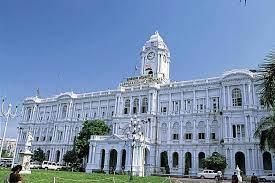 The Chennai Municipal Corporation is the oldest municipal corporation in India.
The Chennai Municipal Corporation is the oldest municipal corporation in India.
(iv) Municipal elections are held every ________________ years.
(a) 2
(b) 3
(c) 4
(d) 5
Ans: (d)
Municipal elections are held every five years.
(v) Local bodies collect money through various types of ________________.
(a) Donations
(b) Loans
(c) Taxes
(d) Grants
Ans: (c)
Local bodies collect money for functioning through various types of taxes.
Q5: Correct and Rewrite the Following Statements.
(i) The government provides only two civic amenities to the people.
Ans: The government provides various civic amenities to the people.
(ii) Nagar palika and nagar nigam are the same terms for a municipal corporation.
Ans: Nagar palika and nagar nigam are different terms for a municipal corporation.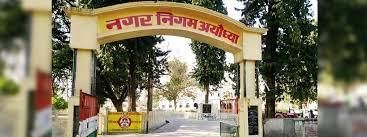
(iii) Municipal councillors are appointed by the state government.
Ans: Municipal councillors are elected by the people, not appointed by the state government.
(iv) Local bodies never receive any money from the state government.
Ans: Local bodies receive money from the state government in addition to collecting taxes.
(v) Municipal elections are held every ten years.
Ans: Municipal elections are held every five years, not every ten years.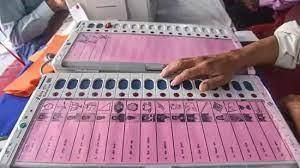
Q6: Write any Two Differences between the Following.
(i) Municipal Committee and Municipal Corporation
Ans:
- Municipal Committee: This looks after smaller cities.
- Municipal Corporation: This is for larger cities with a population of over 10 lakh.
(ii) Mayor and Deputy Mayor
Ans:
- Mayor: The elected head of a municipal corporation.
- Deputy Mayor: The assistant to the mayor, who supports the mayor's responsibilities.
Q7: Name the Following.
(i) The elected members who represent different wards in a city.
Ans: Municipal councillors
(ii) The head of a municipal committee.
Ans: Chairperson or president
(iii) The type of tax collected by local bodies for their functioning.
Ans: Property tax
(iv) The oldest municipal corporation in India.
Ans: Chennai Municipal Corporation
(v) The government elected by the people at the local level.
Ans: Local self-government
Q8: Answer these questions.
(i) Where do the local bodies get money from?
Ans: The panchayats receive funds from three sources i.e., local body grants, as recommended by the Central Finance Commission, funds for implementation of centrally-sponsored schemes, and funds released by the state governments on the recommendations of the State Finance Commissions.
(ii) Who elects the members of the local bodies?
Ans: Three members of the board belong to the Scheduled Castes. The members elected by residents of the municipal area on the basis of adult franchise, elect the president. The term of office of the members and president is five years, which can be enhanced by the state Government in special circumstances.
(iii) What is local self-government?
Ans: Local self-government refers to a government which is formed by people living in the same locality.
(iv) What are civic amenities? Give two examples.
Ans: Civic amenities are basic services provided by the government to the public. Examples include drinking water, electricity, roads, schools, hospitals, etc.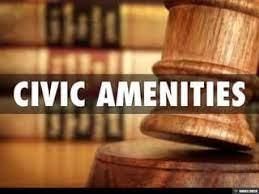
(v) How are members of a municipal committee or corporation elected?
Ans: Members of a municipal committee or corporation are elected by the people through voting. Each ward elects one member.
(vi) What is the purpose of dividing a city into wards for elections?
Ans: Dividing a city into wards ensures fair representation of different areas in the city. This allows for focused attention on local issues.
(vii) How do local bodies collect money for their functioning?
Ans: Local bodies collect money through taxes like property tax, road tax, water tax, etc. They also receive funds from the state government.
(viii) Why is it important to cooperate with local bodies in our area?
Ans: Cooperation with local bodies is important as it helps in the efficient functioning of civic amenities and overall development of the area.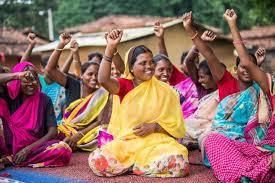
Q9: Think and Answer.
Harjeet is a 19-year-old boy from Amritsar visiting his friend Selvan in Mumbai. Selvan is 17 years old. Can Harjeet and Selvan vote in the municipal elections? Why or why not?
Ans: Selvan cannot Vote because he is underage and Harjit can Vote. The Voting Rights Act of 1965 that required the voting age to be 18 in all federal, state, and local elections.
|
49 videos|177 docs|46 tests
|
FAQs on Our Government Class 4 Worksheet SST
| 1. What is the role of the government in a democratic society? |  |
| 2. What are the three branches of government and their functions? |  |
| 3. How is the head of government selected in a democratic country? |  |
| 4. What is the significance of a constitution in a democratic government? |  |
| 5. How does the government ensure accountability to the citizens? |  |
















